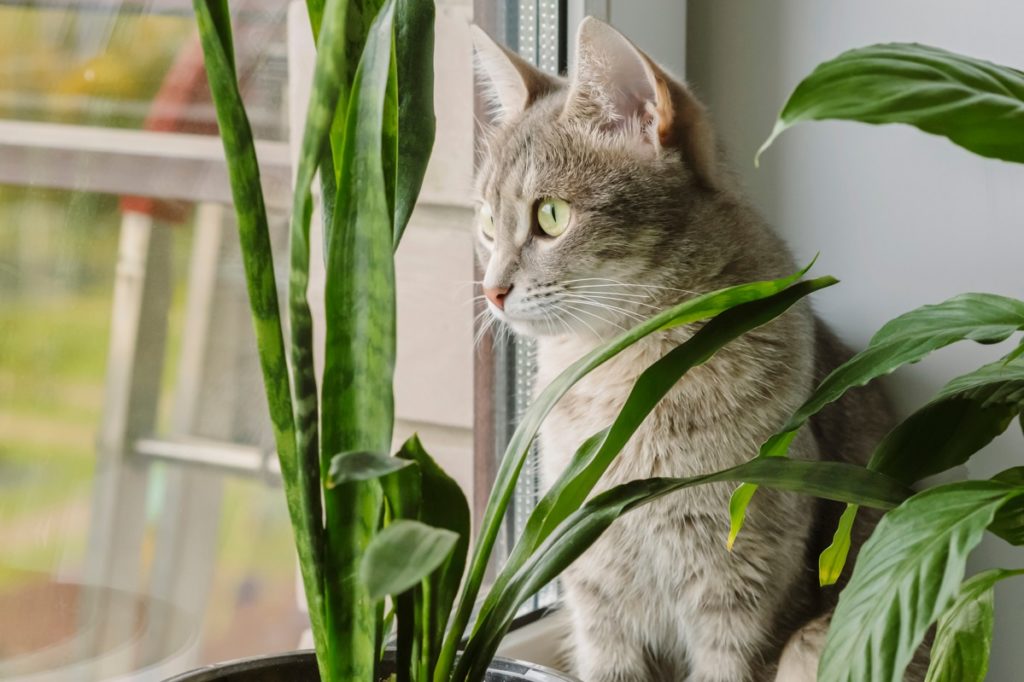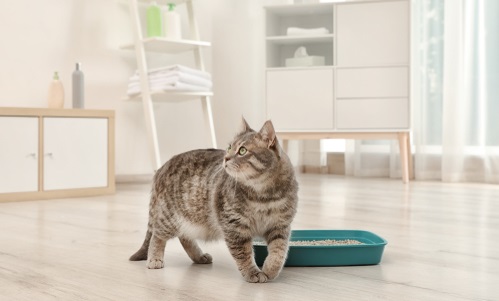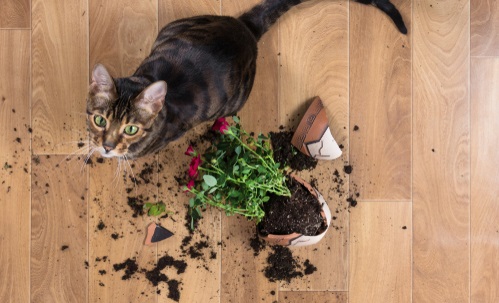None of us like leaving our four-legged legged friends alone, but sometimes you have to go somewhere your kitties can’t follow. Whether you’re planning an extended vacation, setting off for a weekend getaway, or dealing with an unexpected hold-up, you’re probably wondering how long can a cat stay home alone?
Most vets recommend leaving your cat alone for no more than 24 hours, but depending on the needs of your kitty, it could be even less.1
Of course, there’s a lot more to leaving your precious bundle of fur all by their lonesome. This article will explore the risks of leaving your cat alone, pet sitting, kenneling, and what you can do to make your cat’s alone time a little less lonely. Read on to discover the best way to keep your kitty from the home-alone blues.
How Cat Age Affects Acceptable Alone Time
How long can you leave a cat alone? Well, it can depend on their age.
There’s a big difference between leaving your full-grown fluffy by themselves and leaving a kitten home alone. What age is a cat considered a kitten? To put it simply, a 1-year old cat is usually done growing, and by 2, your cat should be socially and behaviorally mature.2
Young felines have more needs than a full-grown cat. Depending on the age of your kitten, they might require special accommodations, including:
- More frequent feedings – While adult cats are happy to wait for meals twice a day, kittens under 6 months old require feedings every 4-6 hours.3
- Home modifications – Tearing curtains, destroying plants, and generally wreaking havoc is par for the course when it comes to kittens. These destructive behaviors are often remedied by adulthood, but until then, you may want to modify your home to protect against potential destruction—especially if you’re going to be leaving the kitten alone. Store fragile objects out of reach and hide anything they might get their claws into.
- Accidents – While young cats are still capable of using a litter box, you may find a few unwanted presents waiting for you if you leave your kitten alone for too long. Whether due to boredom or emotional issues, kittens are less inclined to use their litter box when left alone for an extended period.
It’s recommended not to leave cats under 6-months old alone for more than 6 hours. If you must leave your kitten by themselves, it may be preferable to make up a “cat-proof” room. This is a location in your home where they’re less likely to chew on electrical cords, hideaway in small spaces, or ruin your rug. A roomy bathroom or laundry room may be ideal.
Factors to Consider When Leaving a Cat Alone
For adult cats, there are some practical risks to be aware of when leaving them alone. Be aware that all cats have their own personalities. While some may be totally fine without you, others may cry and act out when their owner isn’t around.
The Litter Box
You want your cat to be comfortable when they’re doing their business. This can be even more important when they’re left without a proper human caretaker. We’re certain cats would be happy to scoop their own litter boxes if they had opposable thumbs. Unfortunately, that’s just not the case.
Litter boxes can fill up fast, so before you leave, be sure to:
- Scoop the box
- Add fresh litter
- Consider cleaning the interior of the box
Cats love a clean and tidy litter box, so ensure they have the best possible place to do their business before jetting off.
Food and Water
No one wants to leave their cat starving while they’re away. While cats are used to going several hours without a meal, keep the following in mind before you walk out the door:
- Water quality – If you’re leaving for a few days, filling a giant bowl with water could seem like a simple solution, but this method might not be enough for some cats. As water sits out—collecting dust, food particles, and stray hair—it can become less appealing. Some cats stop drinking even if they have water in their bowl because the water no longer appears fresh and clean. Keep your cat’s drinking preferences in mind.
- Overeating – Many cats will eat until they run out of food. This makes it risky to double up on meals if you’re going to be out of the house for an extended period. Your cat may gorge themself, consuming all their food at once, and potentially upsetting their stomach.
Weather and Climate
Heading off somewhere to get out of the cold? Be sure your home keeps a comfortable and consistent climate, even when you’re not there. On the opposite end of the spectrum, heatwaves can be particularly dangerous to cats, so ensure you can keep your place cool with AC and fans.
You may need to call someone for assistance or return home early if:
- Your home suffers a power outage
- Extreme weather is reported in your area
- A heating or cooling appliance fails
Emotional Needs
There’s little doubt your cat will be missing you the entire time you’re gone. After all, you’re pretty much the most important thing in your cat’s life. While cats can be solitary and self-sufficient, they typically live for pets, snuggles, and plenty of attention from their favorite human.
If you’re out of the house too long, your cat may start feeling emotionally troubled and a little neglected. These feelings might manifest as:
- Bad behavior – When a cat’s suffering emotionally, they might take their unhappiness out on your stuff. This could entail urinating outside of the litter box, pushing objects off of tables, or clawing at your furniture. Your cat’s not necessarily trying to be destructive, they’re just a little upset.
- Hiding on your return – After a few days away, you might be looking forward to greeting your favorite bundle of fur the moment you walk in the door. Unfortunately, your cat might have other plans. After a few days without human contact, your cat may act stand-offish and distant, even hiding from you.
How To Make Your Cat More Comfortable Alone
We can’t stay at home with our cats 24/7 (as much as we might like to). Vacations plans, work demands, and general life obligations mean we might have to go without our kitties for a little while.
Fortunately, there are several practices, products, and preparations you can explore to ensure your cat’s time home alone time is as pain-free as possible.
Consider the following ways to keep your cat comfortable while you’re gone:
- Automatic feeders – Meal consistency is key to helping your cat stay relaxed while you’re gone. Keep your cat’s meal routine on schedule with an automatic dispenser, set to deliver your cat’s food at the same time every day.
- Self-cleaning litter boxes – Since you’re not there to scoop, you might want to invest in a litter box that does it for you. Self-cleaning litter boxes can clean up your cat’s business while you’re away. This 21st-century convenience can be a real help if you’re out of the house frequently, or if you just want a little help keeping things clean on an average day.
- CBD – Before you leave, while you’re gone, and when you get back, CBD hemp products offer a natural way to help your pet feel their best. Full-spectrum CBD capsules can be mixed in with your cat’s food to provide a multitude of calming benefits and give your cat a mood boost for the long nights without you.
- Toys and food puzzles – Give your cat something to do while you’re gone. While they may already have a basket of beloved toys, something new might be just the thing to keep their mind from missing you too much. Additionally, food puzzles are an excellent way to keep your cat active and engaged when you’re not there to play.
Bringing in a Pet Sitter
How long can cats stay alone? Ultimately, if you’re going away more than 24-48 hours, your cat’s going to need some human supervision. Whether you have someone staying at your home or just visiting, your cat will certainly appreciate a little company.
If you’re preparing for a pet sitter, consider the following advice for making the most of their stay:
- 30 minutes of playtime – Sure, a pet sitter can put some food in a bowl, scoop the litter box, and make sure your kitten hasn’t been getting into any trouble, but a pet sitter should also provide your cat with some much-needed fun. Ask if your pet sitter can spend at least 30 minutes playing with your cat. Whether they’re roughhousing with a toy or jumping for a treat, your cat deserves some entertainment.
- Grooming – Most cats love a good brushing. While they’re perfectly capable of cleaning their fur with their sandpaper tongues, nothing compares to a fine-bristled brush through the fur. It’s like a little kitty massage, and if your pet sitter doesn’t mind, it could go a long way to keeping your cat happy while you’re gone.
- Provide updates – Don’t you want pictures of your precious kitty while you’re gone? Updates can keep you in the loop with whatever is happening with your kitty and your home.
The Benefits of Kenneling
If you’re unable to find a proper sitter before you leave for an extended period, the next best option is to find a cat kenneling service. While it can be a little stressful for your cat to leave their home, kennels can be a smart way to know your cat is safe.
Some benefits that kennels offer include:
- Professional care
- Daily interactions
- Routine mealtime
- Exercise opportunity
Plus, your cat might even make a friend. You could consider kenneling as a little vacation for your cat.
Canna-Pet: Make The Most of Your Cat’s Alone Time
After exploring everything there is to know about leaving your cat alone, you should be prepared to plan your next getaway or just spend a night away from home. That said, if you’re worried about how your feline might feel without you, you might want to consider the benefits of Canna-Pet.
At Canna-Pet, we’re dedicated to keeping kitties comfortable with our full-spectrum, organic CBD products. Our capsules are designed for cats and contain cannabinoids (CBDs), terpenes, and flavonoids that offer real support for your cat. Keep your cat feeling its best even when you’re not around with Canna-Pet. Learn more about supporting your friend from, “what is mange in cats?”, to feline dysautonomia at Canna-Pet.
Sources:
- PetMD. Leaving Your Cat Alone: 9 Things You Need to Know. https://www.petmd.com/cat/slideshows/leaving-your-cat-alone-9-things-you-need-know#slide-9
- PetMD. At What Age Are Cats Fully Grown?. https://www.petmd.com/cat/care/what-age-are-cats-fully-grown
- Rover. How Long Can You Leave a Kitten Alone?. https://www.rover.com/blog/how-long-can-you-leave-a-kitten-alone/
- My Pet. How Long Can You Safely Leave a Cat Alone?. https://www.mypet.com/basic-pet-care/how-long-can-you-safely-leave-a-cat-alone.aspx






